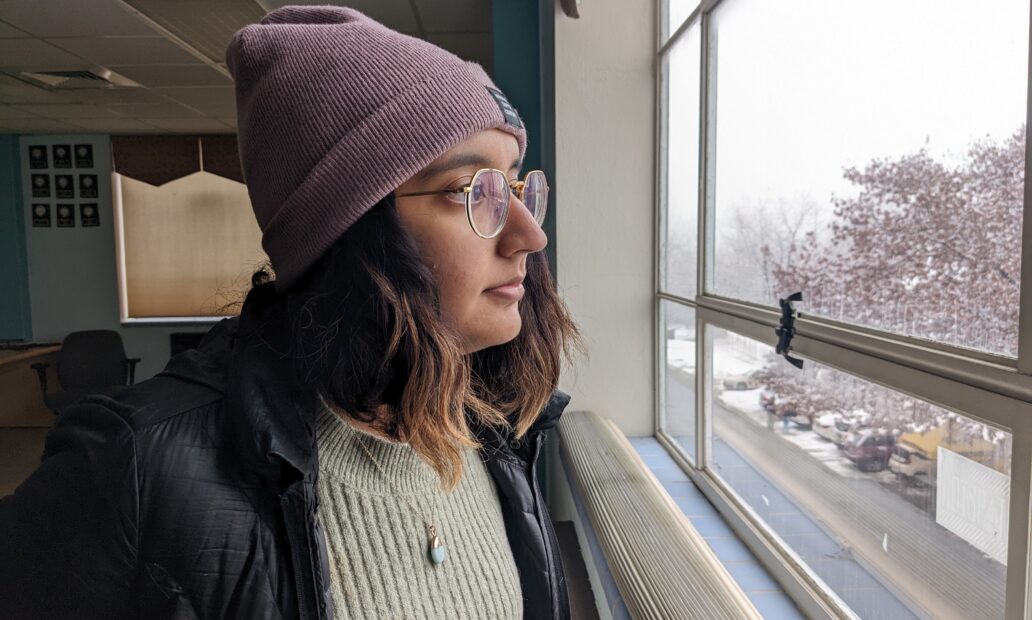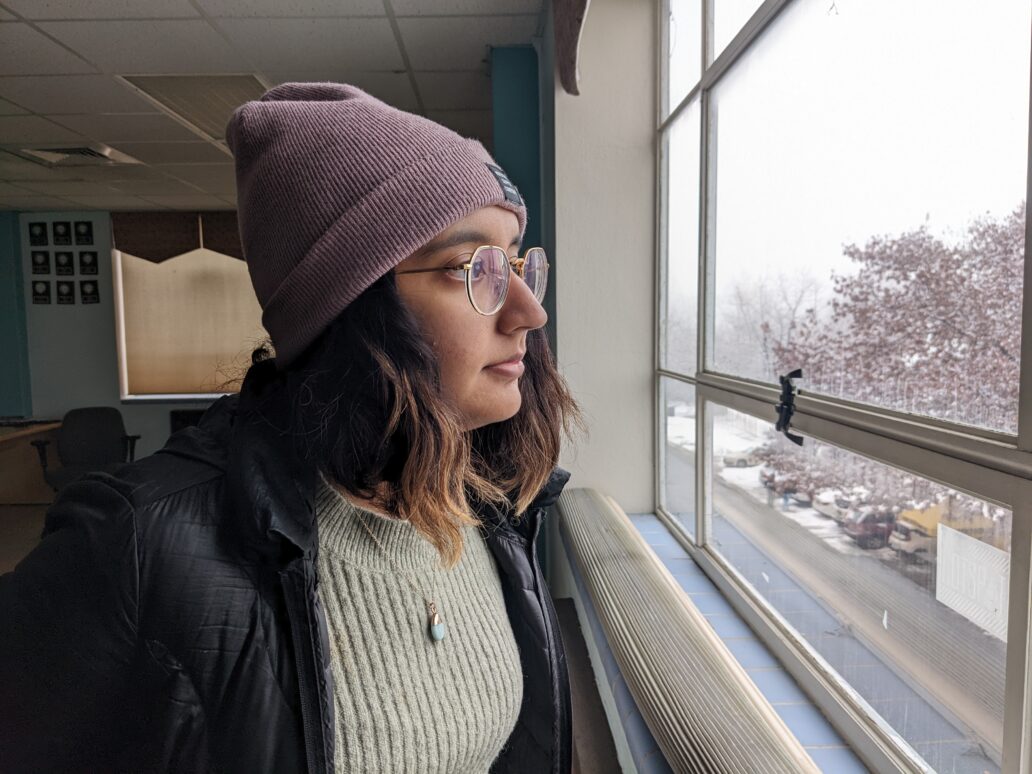
National media still reporting in Moscow, bringing stress to locals and students
Listen
In the weeks that followed the stabbing of four University of Idaho students, the national media descended upon the quiet college town of Moscow in north Idaho. But Lauren Paterson reports not everyone is happy they’re still here.
(Runtime 3:30)
Read
Haadiya Tariq is the editor-in-chief of The Argonaut, the University of Idaho’s student-run newspaper. She and her fellow student reporters were some of the first to report on the Moscow homicides case.
“Obviously, it’s a huge story for us. I did not expect it to get so much national attention,” she said. “But really, within days, larger news sources kind of parachuted into Moscow. So we’re seeing a lot of like, large news organizations we’ve never interacted with before.”
That’s when the calls started coming in.
“There have been phone calls, there have been emails, there have been people calling my own cell number,” Tariq said. “Which, I’m like, how’d you get my number?”
She says it’s been a balance of reporters who are respectful, and those who are not.
“Because some of the interviews that they’ve asked us to do or we have done, we come out of these interviews with this feeling of like, ‘Wow, that was kind of gross,’” she said. “ They just want us to like trash talk the police, they want us to say we’re really scared. They don’t want us to talk as actual reporters, either.”
Tariq has called Moscow home for four years, saying the small rural town is near and dear to her heart. She says she’s not in journalism for the money, or the limelight, but because she cares about her community.
“It’s kind of weird to have to see these people coming in that don’t necessarily have that care or the right intentions,” she said.
Tariq said she’s way more jaded about national media than she was in the past. All of a sudden, news outlets she thought of as reputable were taking a sensationalized or blatantly inaccurate approach to the case.
“Within the day PBS came out with a piece where they were comparing it to the Virginia shooting that happened the same day,” she said.
“There was no notion that like, guns were involved with this incident, there still hasn’t been any connection, but the day of they’re making this false connection, and they published it. And I think that’s very irresponsible reporting.”
Responsible reporting is what Professor Steve Smith tried to get through to future journalists while he taught media ethics at the University of Idaho.
Now retired, Smith says he’s stopped watching all cable news coverage of the homicides.
He says he’s tired of seeing them try to fill content for a 24-hour news cycle pumping out advertisements around the clock.
“It doesn’t matter whether you’re talking about CNN or MSNBC or Fox … on this kind of story, they’re all in the gutter,” he said.
Rather than regulation, Smith thinks we should fix the US media system through public action.That might look like robust media literacy programs for K-12 schools as well as college.
He says making sure media literacy is part of the curriculum could be one solution to better educate citizens on how to determine what’s true and what’s exaggerated when it comes to the news.
“When they start scrolling on a tablet, they need to understand fact from fiction, and we do a terrible job of that,” he said.
Smith has hopes that the internet will be the great equalizer when it comes to the future of the media. And that smaller, local outlets might help break up the big corporations that control so much of the modern media machine.
Tariq says while she and the other reporters didn’t expect this to happen in their small town, it will be the story that defines her college years as an early reporter. And she’s going to keep following the beat.
“I think we’re just really motivated to serve the community and be fair and accurate sources when we’re here on the ground. And we know this place better than anyone else,” she said.
















